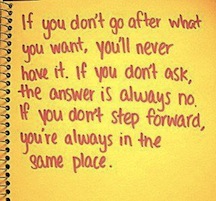Can we end the AIDS Epidemic? This is the question facing our movement. The National Minority AIDS Council (NMAC) has an outline for a plan that incorporates enhanced technologies. We hope its use will change the course of the epidemic. There is nothing magic about our plan; however, our use of technology, if proven correct, could make a real difference.
NMAC will hold a series of Regional Dialogues. The dialogues are not about creating solutions or even agreements. The goal of these dialogues are to identify critical issues, barriers and strategies to ending the HIV/AIDS epidemic in the participants’ regions. We look for representation from the following groups:
o People With AIDS (PWA)
o Community Based Organizations (CBO)
o Community Activists
o Community Health Centers (CHC) & Federally Qualified Health Centers (FQHC)
o State, County and Local Health Departments
o Physicians and other healthcare providers
o Researchers, Epidemiologists & HIV Surveillance staff
o Health Insurers, Private Foundations, Pharmacies
o Pharmaceutical Industry
Our debate, discussion and dialogue will center on some key questions:
o Can we end the HIV/AIDS epidemic in America with current scientific knowledge and technology?
o What are the critical issues, barriers and solutions to implement Treatment as Prevention (TasP) by the stakeholders?
o What are the questions/concerns related to TasP that require further investigation?
o What kinds of partnerships with community, public, private industry and foundations are going to be needed to be successful?
NMAC believes that people living with HIV/AIDS must be at the center of working to end the epidemic. Solutions should be locally planned, implemented and evaluated.
A summary of the regional dialogues will be presented at the United States Conference on AIDS’ (USCA) Summit to End AIDS in America, which will take place on the first day of the conference (Sept. 30th) in Las Vegas, NV (http://www.2012USCA.org). At USCA, we will ask our federal partners to join these discussions where each region will present the outcomes of their dialogues. Plans are not finalized–the program is in flux and open to changes/suggestions.
Based on the priorities identified within the plans, NMAC will work with other national and regional organizations to provide training on the topics deemed most critical. Training may include, for example:
o Patient Navigators
o Prevention For Positives
o Treatment Education
o Treatment Adherence
o Data Collection
o Evaluation
For TasP to work, we need full implementation of the Affordable Care Act – including a robust Essential Health Benefits (EHB) package — as well as price concessions from the Pharmaceutical Industry. I am concerned that there is not a national EHB package so we have to fight state by state to ensure adequate coverage for all people living with the virus.
If we put more people onto drug therapy, we need bulk volume discounts or a significant reduction in the cost of medications. Groups like the Fair Pricing Coalition and National Alliance of State and Territorial AIDS Directors (NASTAD) are working with the pharmaceutical industry to monitor and reduce costs. NMAC wants to support their important work. Ultimately, TasP should be part of a larger prevention agenda that must also include a vaccine and a cure. At this year’s Summit To End AIDS, we will hold a special plenary on Finding The Cure.

The next two years are going to be some of the most interesting and the most challenging times of our lives We need to be flexible and things will change. We don’t know how this is going to turn out, but we must see this through. When I was a kid, I used to love a ride at Disneyland call “Mr. Toad’s Wild Ride”. This is my real life version of that ride. We are going to spin like crazy, we’re not going to know where we are going, but hopefully we will survive to tell the story of our great adventure.
